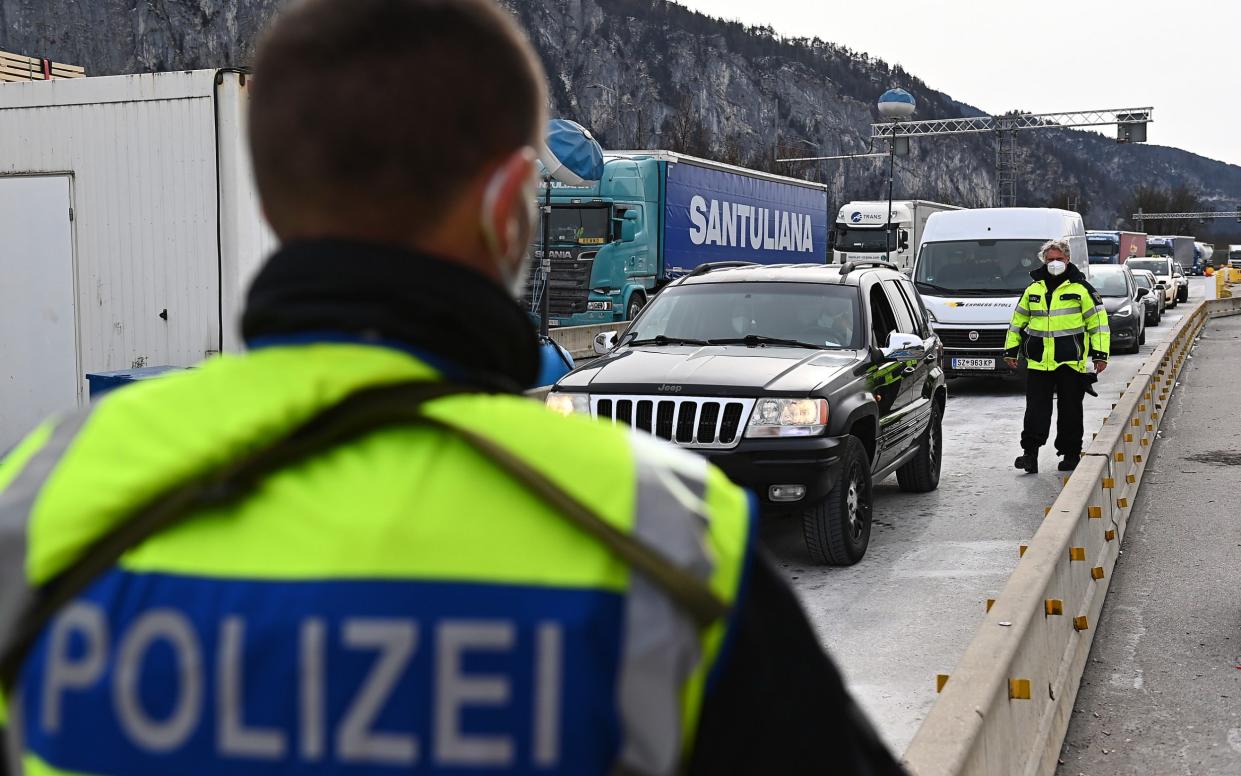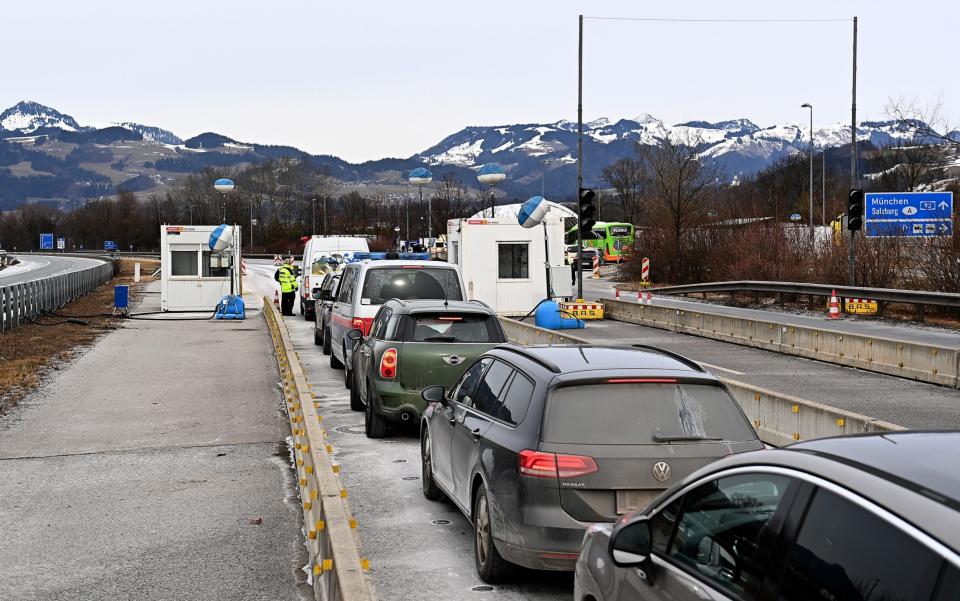Germany sparks row after closing Czech and Austrian borders over virus mutations

A diplomatic row has broken out after Germany closed its borders with the Czech Republic and the Austrian region of Tyrol in a bid to prevent the spread of coronavirus mutations.
France warned Germany not to take any similar measures at its border without consulting Paris first as Austria accused Angela Merkel’s government of a “provocation”.
The Austrian government summoned the German ambassador at the weekend to protest what it described as “unnecessary measures that do more harm than good”, and German carmakers have warned the closures could lead to delays in the supply of parts and force a slowdown at their factories.
There were reports of three-hour queues at the border between Germany and the Czech Republic on Monday after the closures went into effect , and almost 5,000 people had been turned away by early afternoon.
Only German citizens, foreign residents and essential workers are currently allowed to cross the border — and they must have a negative PCR test no more than 48 hours old. There are no exceptions for regular cross-border commuters.
Germany ordered the closures last week amid concern at the high incidence in the Czech Republic and Tyrol of newer coronavirus variants that are feared to be more infectious.

While the worst delays have been at the German-Czech border, it is the restrictions with Austria that have caused the bigger row. Vienna, which has already imposed internal travel restrictions on Tyrol, argues the move is excessive.
“The corona pandemic and its effects must be dealt with at an objective level. Pointing the finger at the state of Tyrol is more of a provocation than a suitable measure to contain the pandemic,” Karl Nehammer, the Austrian interior minister said.
The region is at the crossroads of Europe, and even Slovakia, which has no border with Germany, has protested at the knock-on effect for its supply chains.
There is speculation Germany could order a similar move at its border with France after the region of Moselle recorded a high incidence of the South African variant.
Clement Beaune, the French Europe minister, called on Monday for discussions with German regional leaders “to avoid any nasty surprises”, adding: “There must be no decision that is not coordinated”.
“Controls in the heart of Europe are always the last resort, an absolute exception,” Horst Seehofer, the German interior minister, said. “We will get back to normal as soon as possible, but at the moment the controls are necessary to protect our health.”
“The fear of coronavirus mutations is understandable, but the truth is that the virus cannot be stopped by closed borders, Stella Kyriakides, the European Union's health commissioner said.
But her comments were dismissed by Stephan Mayer, Mr Seehofer’s deputy at the German interior ministry, who said: “Germany doesn’t need any instructions from Brussels”.

